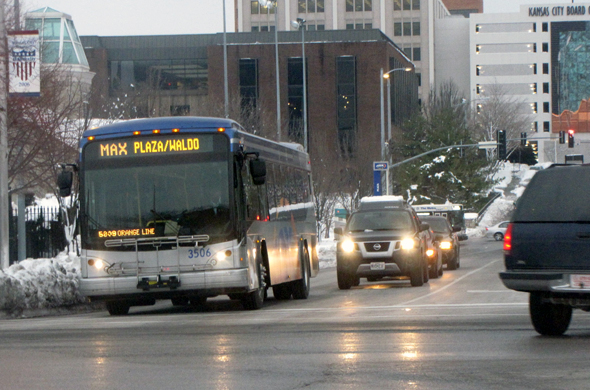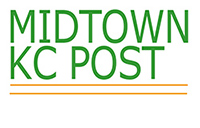 A complex political clash that pits buses against street repairs flared Wednesday before the council finance committee.
A complex political clash that pits buses against street repairs flared Wednesday before the council finance committee.
Bus advocates say the city broke promises because the city manager’s recommended budget does not give the Kansas City Area Transit Authority (KCATA) more of the money raised by a transportation sales tax passed in the 1970s.
When the tax was originally passed, the money could be used for transit and also could be used for things like street repairs.
Then the council in 2010 passed an ordinance that said the city must incrementally increase that sales tax money going to the KCATA until they get 95 percent of it by May 1, 2014.
The city finance director calls that “an earmark on an earmark.”
The transportation tax raises about $29 million a year and City Manager Troy Schulte’s budget – to be passed next week – recommends no increase for the KCATA. That’s because it calls for $2 million from the tax for streetcars and $5 million for street repaving.
That street money is part of $19 million to be used to repave about six times as many streets as last year – a high point in the mayor’s state of the city speech this week.
Schulte said the city gives 80 percent of the sales tax now to KCATA and is on target for 95 percent by the 2014 deadline.
But a proposal before the council would eliminate the 95 percent requirement and set future divisions of the money after a study.
Ron McLinden of the Transit Action Network told the Finance, Governance and Ethics Committee not to repeal the 95 percent requirement.
“We thought we had a deal – apparently we were wrong,” he said. He noted that the KCATA is drawing down on its reserves to keep the buses operating.
Finance Director Randy Landes spoke against the whole concept of earmarks and noted that city policy was not to do them.
They limit how flexible the city can be in responding to changing times and needs, he said. “Do you want to continually go down this path of earmarking your earmarks?” he asked.
But councilmembers John Sharp and Ed Ford noted another complexity: Voters were promised in approving another sales tax for buses that buses would also get 95 percent from the 1970s tax.
Sharp also said voters like specifics on how tax money will be used because “they don’t have great faith in how that money is spent.”
Mark Huffer, general manager of KCATA, said that as things stand its reserve funds will be dry by about 2018 and services cut, with or without more in tax money in the new budget.
He favors a study and planning on how the tax money is to be used, he said. “We know there is no such thing as budget certainty.”
So what was the finance committee to do – side with buses, decent streets or neither?
It transferred the ordinance to the Transportation and Infrastructure Committee.



Who’s talking